Twitch, Youtube, and "New Media"
The online landscape has shifted drastically over the course of the last five years. Websites and blogs used to be king, with dedicated reader bases coming back day after day to read the newest posts. There was a golden period of growth where anyone could make a website, and if they were dedicated, it would probably do pretty well. Coverage of games was done extensively through written articles, blog posts, and reviews, and there was a stable, if slightly adversarial, relationship between these companies and the companies that made games. Sites would get early review copies of games, access to developers for interviews, or in-depth press kits to help prepare coverage. In return, websites agreed to not post coverage of these titles until an agreed upon date. An equilibrium was reached.
Then YouTube came along and changed things. By virtue of its audience, content creators on YouTube relied on heavily edited videos, showing only the most exciting moments of whatever they were talking about. The massive Let’s Play community grouped around different games, and audiences had truly immense amounts of content at their fingertips. Search the name of the game, and they can find dozens of highly edited, exciting videos making it look to be fun, or small communities of super fans religiously playing and dissecting the game for years afterwards. You can see it with Counter Strike, or League of Legends, or DOTA, or Overwatch.
Companies noticed, and they took advantage of it. Many of these videos bordered on advertisements already in how they catered to audiences to draw them and in keep them interested. YouTube content creators live and die by audience retention, so they want to show viewers that they can come back day after day to consistently exciting and engaging content. Companies started reaching out to these channels, sending them free promotional materials or copies of the game, and any mention of this becomes positive advertising for the company. If someone receives a special Skyrim hat from Bethesda and shows it off on their YouTube channel because they feel special, it alters the appearance of Bethesda in the mind of consumers, changing them from a faceless corporate entity into an attentive and caring company that looks after its fans. They don’t have to ask for positive press from the creators, because any mention of them is good.
Compare this to the way in which video game websites handle the same situation. People don’t want to read an article about a special Skyrim hat that the author got from Bethesda, because it reads like an advertisement. Swag, or promotional materials, have been a part of the games industry, and indeed many others, for a long time. But unless the readers can get the exact same item, they don’t care. They view the pieces published by the website to be the statements of that website, regardless of who wrote them. There is less of a connection between the reader and the writer in most cases, and with this personal connection lost, appeals to the consumers work differently. Websites (outside of fan websites) don’t care about swag, because the audience doesn’t care about swag.
As YouTube has gotten larger, smaller content creators have slowly been getting crowded out. The platform enormously favors those with the time and the budget to produce consistent, daily, high quality, ten-minute plus videos, and the number of channels that can do this is low, in the grand scheme of things. Combine this with the too stringent DMCA policies that make it much too easy for a video to be taken down or removed from monetization, and many creators have been forced to diversify.
Twitch was there to pick up the pieces. Communities are only reinforced on Twitch, which shows categorizes livestreams by what games are being played while highlighting high profile streamers. However, on Twitch, channels did not have the benefit of editing to support their content, and personality reigned supreme. Tight knit communities form around streamers as they interact with their audience every single day to the point where a relationship is built. And companies have taken advantage of this. If a streamer is allowed to stream a game early, they are given a sense of exclusivity, and an implicit recommendation of the game from them to their fans. Anything that the company does for the streamer, from joining them on stream to sending them packages of promotional material, brings that company into the community.
There is nothing wrong with marketing or advertisement. It is how content creators can survive, and it is an integral part of the development and release of a game. It is a very necessary force. Print and online media have a whole host of ethical questions relating to companies that are being covered, ostensibly impartially, while these outlets are simultaneously running advertisements for these games. It’s a conflict of interest, and one that needs to be tackled and disclosed.
The issue with marketing comes when it stops appearing as marketing, when companies are manipulating fans and creators into giving them good press without revealing it, when content creators are being paid to create promotional videos without disclosing these facts, when the influence cannot be seen.
So where does that leave sites like ours, sites that don’t exactly fit into any of these molds? How do they survive? Do they attempt to extend their reach, diversify into different areas, start advertising the products that they are covering, or do they hunker down in their niche, trying to carve out a spot? The second is, without a doubt, more difficult. Staying truly independent is a challenge that all websites will face, and whether or not to stay that way is a question that every site will have to answer at some point during its lifespan. It is a question that we struggle with every day, and it is one that we eventually hope to answer.
____________________________________________

Tom has been writing about media since he was a senior in high school. He likes long walks on the beach, dark liquor, and when characters reload guns in action movies.
You Might Also Like:
Situational Invincibility and How it is Ruining Action MoviesExpectations vs Reality
What is Death of the Critic?
_____________________________________________
The Backlog - NOT A HERO
I have a confession to make. Like many of you reading this, I have a list of games that I’ve been meaning play for years. I have way too many games on Steam, and a stack of cases sitting next to my TV. Close to five hundred games now. Maybe more. It makes me feel guilty. I haven’t touched 90% of them in one way or another. I need to fix that. So this week, I dug deep into my backlog and pulled out a game. I want to play all of them; I’ve just never had the chance. Now’s the time.
Devolver Digital has had a pretty outstanding publishing record, at least in my opinion. They tend to attach themselves to some rather interesting titles, and that was what initially drew me towards NOT A HERO. And I’m glad that I decided to check it out. Read More…
Anatomy of a Scene - It Follows
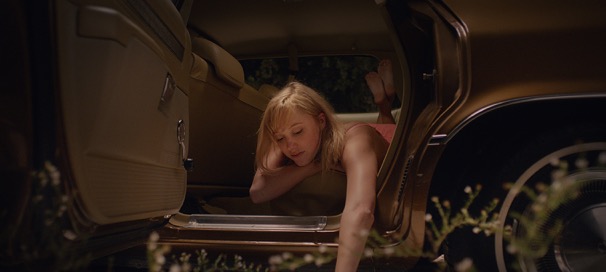
Something is following you. Hunting you. Heading in a straight line for you at every single moment of your life, awake or asleep. It can take the form of anyone, whether that be a stranger or someone you love. It wants to kill you, but it also wants to hurt you in the process, and this haunting presence is always lurking at the back of our minds, behind every corner or walking extra.
Why Did I Watch That? - Roger Corman's Death Race 2050
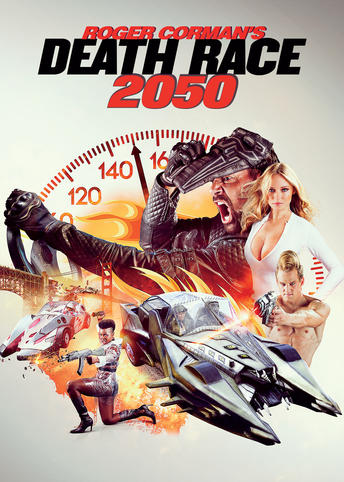
I watched a bad movie today. It is sort of a guilty pleasure of mine. Watching bad movies that is. I revel in the terrible plots, paper-thin characters, cheesy effects, and wooden acting. It fuels me. I love them in a way that I can’t quite describe, or feel about bad games or music. To me, bad films deserve to be recognized, talked about, and maybe occasionally ridiculed. This one is no exception.
Camp is a very interesting thing. It’s not something that you can actively seek out when making a movie. It has to come naturally, falling into your lap sometime during the process, with a certain level of self-awareness about what is being created. Unfortunately, too many movies try way too hard to be campy, and it normally leads to disastrous results and terrible movies. Death Race 2000 managed to become a cult classic based partly around its camp, but also with a good deal of biting commentary and satire. But with the 2017 follow-up, the creators tried way too hard to capture lightning in a bottle a second time around. Instead of a cult classic, they just had a broken bottle, and a bad movie.
The Noble Savage
As a follow-up to our discussion on “The Other”, let’s look at a more idealized version of the same concept that is popular within literature, books, movies, and games to this day. The Noble Savage is the audience’s idea of an outsider. It is the romanticized depiction of a character untouched by the ills of modern society. They embody the traits that we idealize while at the same time being utterly foreign to us. Read More…
Sequels and Reviews
Earlier this week, we publish an article about sequels and how they are viewed in relation to their preceding works, and we wanted to take the time to clarify our position on how we address this concern when writing a review for a sequel. While we do our best to look at each work on its own merits, we cannot discount significant advances or steps back compared to other works within the same franchise. Read More…
The Backlog - Homefront: The Revolution
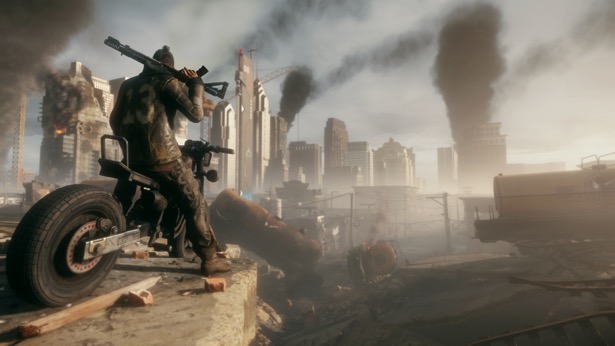
I have a confession to make. Like many of you reading this, I have a list of games that I’ve been meaning play for years. I have way too many games on Steam, and a stack of cases sitting next to my TV. Close to five hundred games now. Maybe more. It makes me feel guilty. I haven’t touched 90% of them in one way or another. I need to fix that. So this week, I dug deep into my backlog and pulled out a game. I want to play all of them; I’ve just never had the chance. Now’s the time.
The first Homefront was forgotten rather quickly, another in a long line of generic modern shooters that everyone forgot about. I, like many others, thought that it would be a forgotten piece of video game history, a curiosity that somehow got made. So, when it was revived as a semi-open world, first-person shooter, I was baffled, to say the least.
Mass Effect: Andromeda - Review

Mass Effect: Andromeda put itself in a rather unfortunate position before it was even released. It is a follow-up to one of the best franchises of the last generation that tied everything up rather neatly. Bioware has fallen out of favor in recent years, and after a series of rocky previews, Andromeda finally came out. Plagued with issues at launch, Andromeda is not a great game. It isn’t bad, but in many ways, it highlights a lot of the issues that I have with contemporary video games, while taking massive steps backwards in the franchise. It is painfully average and fails to trigger those same emotions that the earlier titles were so good at tugging on.
Expectations vs Reality
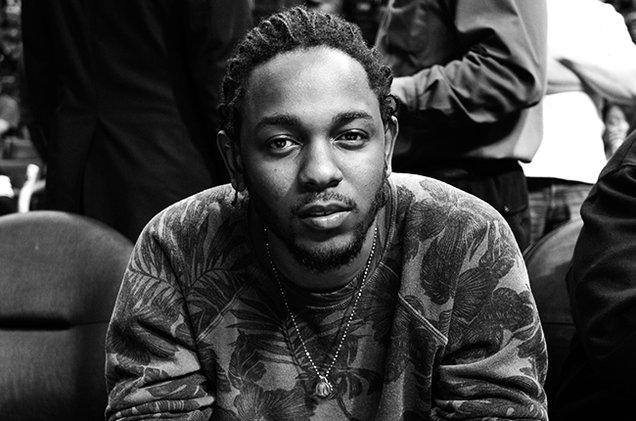
In these times, sequels are the name of the game. Finding a franchise that can be used over and over again to draw people to stores and theaters. The same can be said of music alongside games and movies, as fans eagerly await the newest release by their favorite artist. The only difference is where the name recognition lies. For games it might be with a franchise or a studio, in movies with a lead actor or director, and in music it lies firmly with the artist.
DAMN. - Review
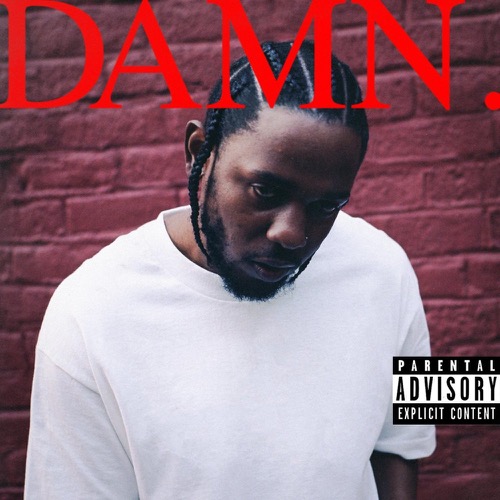
Kendrick Lamar is an artist that has always grown on me, and he has been remarkably consistent in putting out amazing records, even if it sometimes takes me a few listens to get into them. With this success has come a certain expectations, a bias towards greatness and groundbreaking tracks. His B-sides collection was one of my favorite albums of last year. And I think that this expectation is somewhat unfair. DAMN is a great album, there are no doubts about that, but it isn’t of the same level as either To Pimp a Butterfly or Good Kid, M.A.A.D City. Would I think more highly of it if I didn’t have either of these albums to compare it to, or if it was from a different artist? Is it even fair to compare them to each other? It is hard to eliminate one’s biases in writing a(n) (inherently subjective) review, but at the very least we try to make it known.
Why Did I Watch That? - Death Race: Inferno
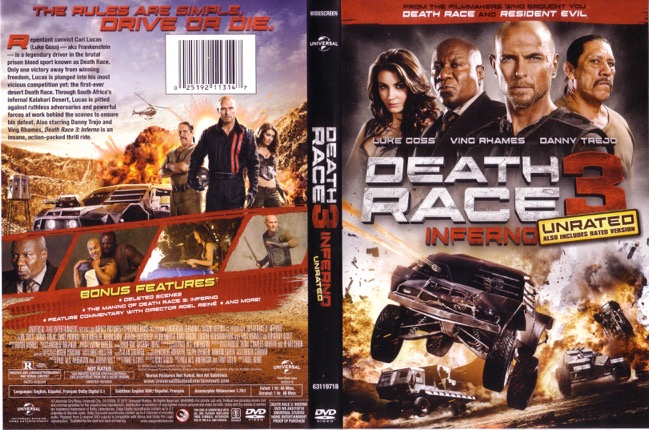
I watched a bad movie today. It is sort of a guilty pleasure of mine. Watching bad movies that is. I revel in the terrible plots, paper-thin characters, cheesy effects, and wooden acting. It fuels me. I love them in a way that I can’t quite describe, or feel about bad games or music. To me, bad films deserve to be recognized, talked about, and maybe occasionally ridiculed. This one is no exception.
When I watched Death Race 2, I said it would be a better movie if it was worse. This is that movie.
The Other
We’ve talked about the Other and bothering before, but it is a topic that deserves further examination. The Other is all about setting up the relationship within a story, about creating conflict and division. And it can be used in multiple different ways. It is a rather simple idea as well. The other is different. They don’t belong. They are strange and don’t fit in for some reason. It could be any number of things: their race, gender, sexuality, nationality, religion, class, species. Anything that differentiates them from the norm as defined by the story and it’s protagonists. Read More…
Updates and Reviews
When we are reviewing a game, we have a unique issue that we don’t encounter with any other type of media. When a game launches, rarely will it stay in the exact same state over the coming days, weeks, months, or even years that it will be in the public. It will be updated and changed over time. Sometimes these updates are small: balance tweaks to multiplayer, text fixes, or subtle adjustments that no one will ever really see. But on the other hand, some alter graphics, story, gameplay, or more. At the root is this idea: patches are fixing something wrong with the game, no matter how big it may be. So how do we deal with this as reviewers. Read More…
The Backlog - SUPERHOT

I have a confession to make. Like many of you reading this, I have a list of games that I’ve been meaning play for years. I have way too many games on Steam, and a stack of cases sitting next to my TV. Close to five hundred games now. Maybe more. It makes me feel guilty. I haven’t touched 90% of them in one way or another. I need to fix that. So this week, I dug deep into my backlog and pulled out a game. I want to play all of them; I’ve just never had the chance. Now’s the time.
Anatomy of a Scene - The Matrix
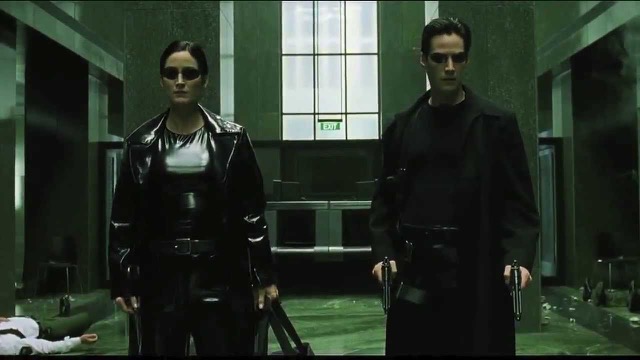
It is harder than you might think to make a great action scene. But it isn’t that hard to make a good one. Just get an engaging actor, give them a big gun, and a crowd full of goons to let loose upon. A scene like this is entirely serviceable, but many directors try to make it more complex by incorporating too many characters, with too confusing of action, and all of a sudden, you don’t know what is going on anymore. What was once a good action scene has become terrible. A good scene needs to remain clear, no matter what. You should be able to identify the positions of characters and how they are moving through the world, without unnecessary establishing shots bogging it down, all while remaining compelling and heart pumping.
Memories... Do Not Open - Review
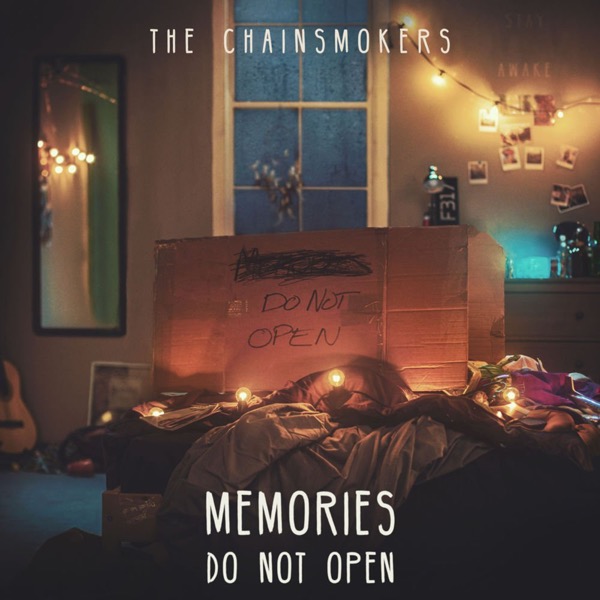
My opinion on The Chainsmokers is well documented, but somehow I had hoped that their first real album could somehow be different, break new ground and make good music. To say that didn’t happen is an understatement. There is nothing new here, just more of the same beats, more of the same subjects. More of the same everything. I’m not mad. I’m disappointed.
Why Did I Watch That? – Death Race 2
I watched a bad movie today. It is sort of a guilty pleasure of mine. Watching bad movies that is. I revel in the terrible plots, paper-thin characters, cheesy effects, and wooden acting. It fuels me. I love them in a way that I can’t quite describe, or feel about bad games or music. To me, bad films deserve to be recognized, talked about, and maybe occasionally ridiculed. This one is no exception.
I’ve written before about the folly of trying to reboot franchises that Jason Statham has starred in, and Death Race is no exception, being one of the rare double reboots. In our continuing saga to see how far off the rails one franchise can get, we look this week at Death Race 2. This time around, Luke Goss assumes the role of Frankenstein as the producers continue to try to find ways to make this lineage more complicated. After he kills a police officer during a robbery, he goes to prison, where he competes in the “Death Match”, which isn’t a race, as fighters duke it out in an arena.
The Tragic Hero
When we are looking at the construction of a character, it can help to understand some of the basic archetypes that many authors pull from. We recently talked about Shakespeare as a cultural touchstone, and if we look at many of his plays, we can find evidence of a “tragic hero”. The tragic hero is an age old character archetype describes by Aristotle as:
“A man not pre-eminently virtuous and just whose misfortune, however, is brought upon him not by vice and depravity but by some error of judgement, of the number of those in the enjoyment of great reputation and prosperity; e.g. Oedipus, Thyestes, and the men of similar families. The perfect Plot, accordingly, must have a single, and not (as some tell us) a double issue; the change in the hero’s fortunes must be not from misery to happiness, but on the contrary from happiness to misery; and the cause of it must lie not in any depravity, but in some great error on his part; the man himself being either such as we have described, or better, not worse, than that.” (The Aristotelian Concept of the Tragic Hero) Read More…
Humor in Games
Humor is really hard to nail in games. Its either hit or miss, and when it misses, it can be bad. There are a few games that manage to absolutely nail it (Day of the Tentacle, I’m looking at you) but so many more just absolutely flop, and in doing so, manage to pull you out of the experience entirely.
In the last month I’ve played two big games that have been really bad about it. Ghost Recon: Wildlands and Mass Effect: Andromeda, which both tried to work semi-edgy humor in alongside their more serious stories to varying levels of success. Every time I heard one of these bad jokes, it pulled me out, actively reminding me that I was playing games, poorly written ones at that. Read More…
The Backlog - Don't Starve
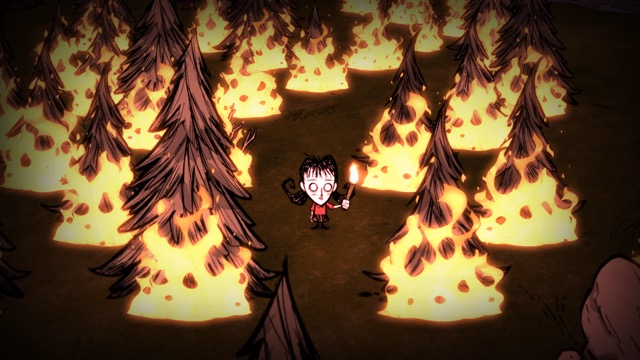
I have a confession to make. Like many of you reading this, I have a list of games that I’ve been meaning play for years. I have way too many games on Steam, and a stack of cases sitting next to my TV. Close to five hundred games now. Maybe more. It makes me feel guilty. I haven’t touched 90% of them in one way or another. I need to fix that. So this week, I dug deep into my backlog and pulled out a game. I want to play all of them; I’ve just never had the chance. Now’s the time.
Don’t Starve is a deceptively simple game. At first it seems like you just need to gather food and survive, but the deeper that you get into the game, the more complex systems begin to reveal themselves. There is magic and technology, cultivation and crafting, fearsome enemies hiding in dark places. And in some ways, the game is better for obscuring these systems, letting you discover the systems on your own and adding entire other layers of depth to the systems.
Future Unfolding – Review

Future Unfolding is a hard game to describe. A philosophical, top down exploration of a gorgeous world as you try to figure out what exactly is going on. You are dropped in with basically nothing, and what story is there is confusing to say the least. But there is something magical about wandering through the world here, almost discovering new things and slowly inching your way forward on this quasi-vision quest that you’ve found yourself in the middle of.
Why Did I Watch That? – Death Race
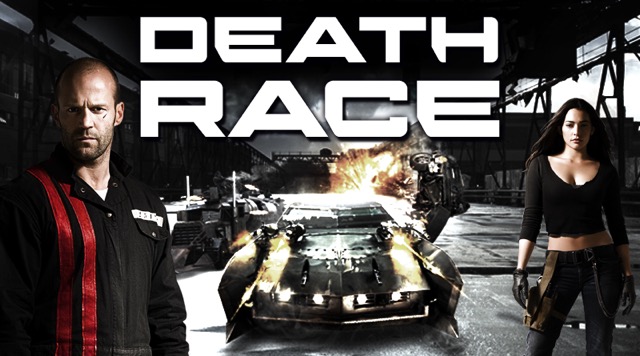
I watched a bad movie today. It is sort of a guilty pleasure of mine. Watching bad movies that is. I revel in the terrible plots, paper-thin characters, cheesy effects, and wooden acting. It fuels me. I love them in a way that I can’t quite describe, or feel about bad games or music. To me, bad films deserve to be recognized, talked about, and maybe occasionally ridiculed. This one is no exception.
Jason Statham is one of those actors whose judgement that you have to questions sometimes. His taste in movies tends to run towards whatever allows him to look the coolest while also punching and kicking as many people as possible during the limited runtime of the film. Which is sort of surprising given his roles like that in Snatch, which was excellent. Many of his more contemporary films, however, are not so great.